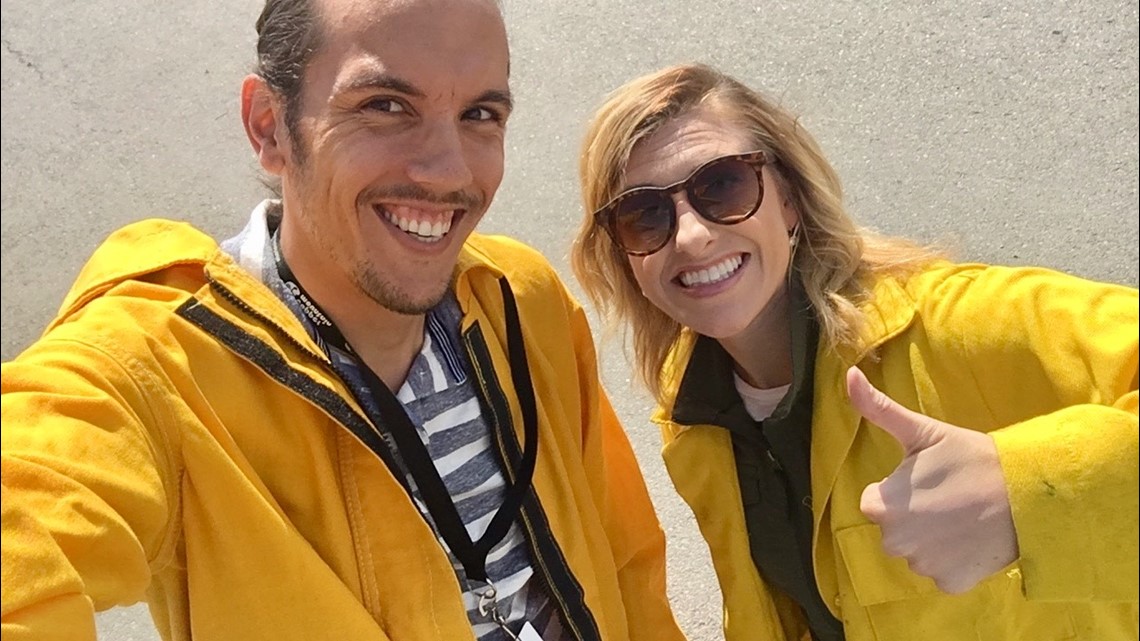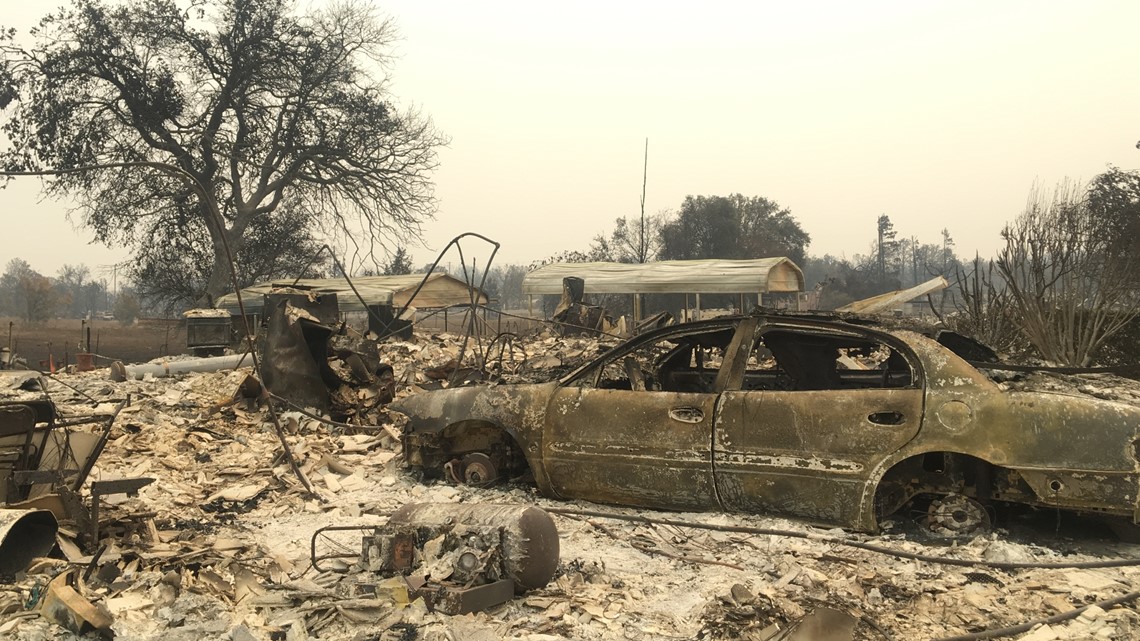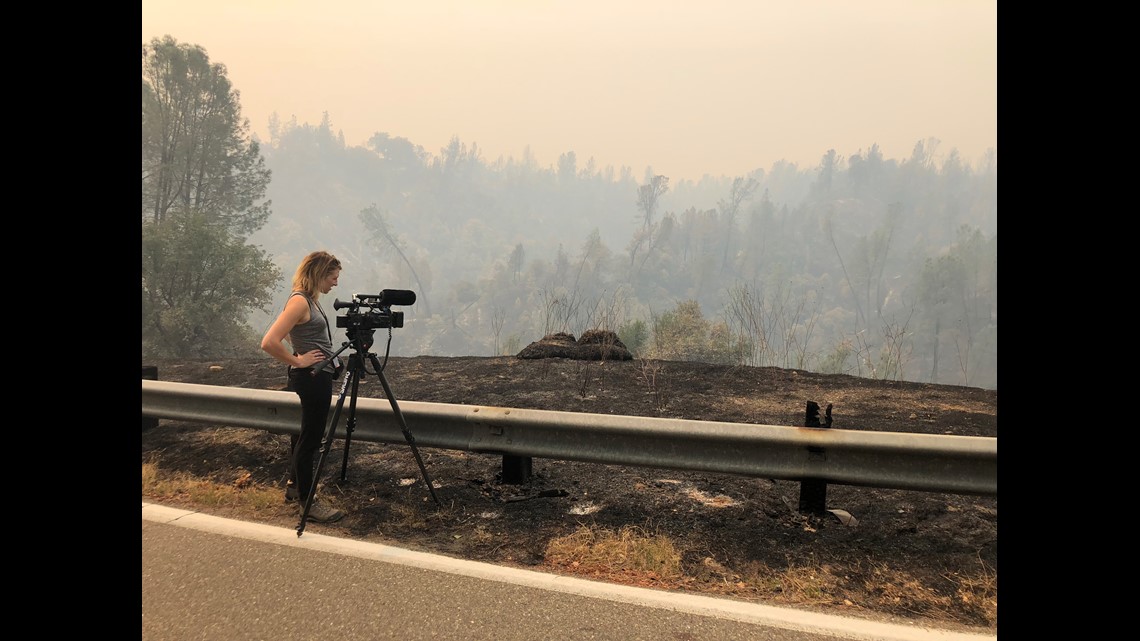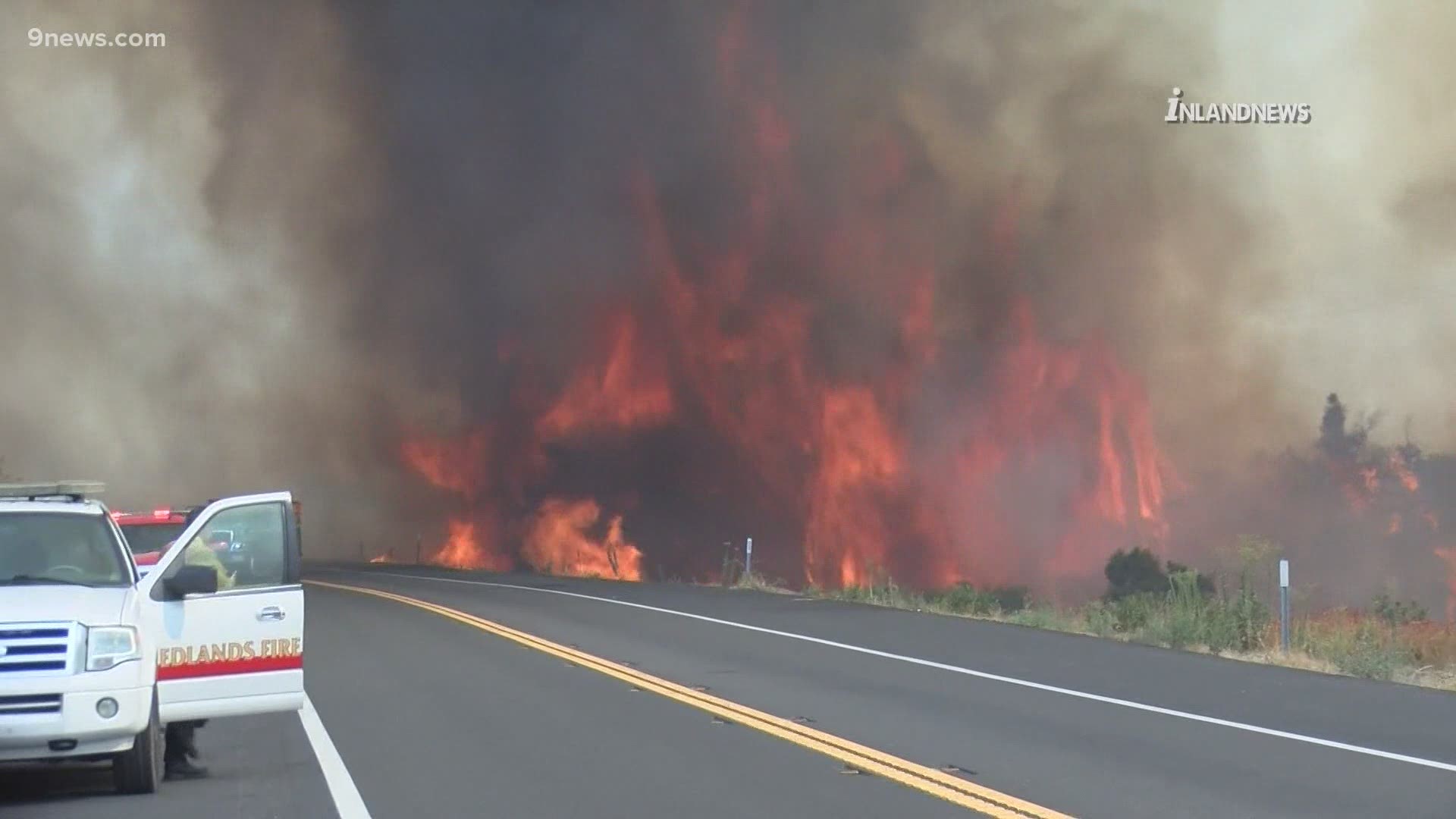DENVER — Three years ago, I had never covered a wildfire in my life. I’m from New England, and although we still have Smokey Bear warning us, wildfire season does not exist there.
Colorado gave me my first taste in 2018 with the Weston Pass Fire. I suited up in borrowed a flame-resistant Nomex, wore my hiking boots and then stood miles away from any flames at the road closures in Fairplay.


The Nomex felt like overkill as people went about their day around me wearing flip flops and T-shirts.
A few months later, a colleague and I were asked to help our sister station cover wildfires in northern California. The Carr Fire was burning through communities and our crews needed some relief from working long hours.
Noel Brennan and I packed the Nomex not knowing if we’d need it.
But on our very first day we were driving through neighborhoods that were burned to the ground with hot spots still smoking. California reporters are accustomed to this, but it felt as if we were seeing something we shouldn’t.


A court precedent set in 1986 that stems from a journalist being arrested after he was covering a plane crash allows journalists unrestricted access to disaster scenes.
Noel and I got to work telling stories. The kind we could never get access to in Colorado. We told a story of an elderly woman who only got out before her home burned because of the kindness of a stranger with a truck. Noel told the story of firefighters going through people’s destroyed property making sure the trees won’t fall when the public comes back in.


I went back to California with my co-worker, Bryan Wendland, when the Camp Fire destroyed the town of Paradise. Again, we told stories we cannot tell in Colorado.
In our state, county sheriffs decide who gets access beyond road closures and fire lines. It is rarely the reporters, despite repeatedly asking permission.
My co-worker, Anne Herbst, and I were recently sent to Oregon to help our other sister station in Portland in an unprecedented fire season there. Like Colorado, they don’t have a law that allows unrestricted access, but local officials will occasionally provide an escort into burned areas.
We asked for an escort into a particular area in Otis, Oregon that was burned by the Echo Mountain Complex Fire on the coast, and the Lincoln City Police chief denied access citing safety concerns and the fact that homeowners have not been allowed back in yet.
We received a denial from the Larimer County Sheriff’s Office today for a similar reason when we asked to see the homes burned by the Cameron Peak Fire. Owners with destroyed buildings will likely be let in at the end of the week, but reporters won't.
In California, families will often see their homes are gone on the news before they can see them in person. I talked to an anchor at our sister station in Sacramento who said it is tough news to report, but as a journalist, she doesn’t want reality hidden.
“At the end of the day, it’s uncomfortable and it’s very devastating, and it’s very sad,” said Madison Wade. “But we are faced with unprecedented wildfires that are taking over communities every single year. And so we’re documenting really what’s happening.”
SUGGESTED VIDEOS: Colorado wildfires

